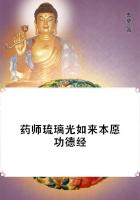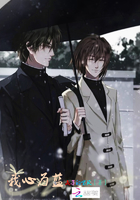"How beautiful it is here!" said Haydn, standing still in the door of the garden, and slowly looking around at the flowers and shrubbery, the humming bees and flitting butter-flies. "Oh, how gloriously beautiful is God's creation, and how radiant--""How radiant is nature," interrupted Conrad; "how brilliantly the sun shines, and how splendid the lawn looks!""You are a fool, old Conrad, to repeat these words from MY'Creation,'" said Haydn, with a gentle smile. "I was not thinking of MY 'Creation' at this moment, but of God's creation. And He certainly knew more about the music of the creation than I did, and--just listen how the nightingale sings in the elder-bush yonder! It is an air such as is to be found only in God's Creation, and, as Joseph Haydn, with all his talents and enthusiasm, never was able to compose. Oh, how sweetly this prima donna assoluta of the good God sings, and what divine melodies, modulations, and harmonies she warbles forth, and--But what is that?""That is the parrot singing an air from Joseph Haydn's 'Creation,'"exclaimed Conrad, bursting into triumphant laughter. "And just listen, doctor, the prima donna assoluta of the good God has become entirely silent, and listens with delight to the divine melodies, modulations, and harmonies of my dear master Joseph Haydn.""You are a fool, Conrad, despite your seventy years," said Haydn, "to call old Paperl my prima donna assoluta, and compare him with the nightingale. But tell me, for God's sake, where did the bird hear that melody? Why, Paperl whistles the great base-air from 'The Creation' as though he were the first singer. Where did he learn it?""I taught him the melody, doctor," said Conrad, proudly; "I gave him lessons for three months, and he took pains to learn the melody, for he knew full well that we two were preparing a little surprise and joy for our dear master, the great Joseph Haydn.""And that is the reason why I have not seen Paperl for so long,"said Haydn, nodding his head gently. "I did not wish to inquire after him, for I was afraid the answer would be that the bird was dead and had gone home to my dear old wife.""Well, I am sure Paperl would never go to her," said Conrad, laughing; "the two could never get along with each other, and were always quarrelling. Whenever Paperl could catch one of your wife's fingers, he bit it with his thick beak, and she hated the bird cordially for it, and would have preferred sending him to the grave than descending into it herself. But Paperl did not die, and you need not be anxious on his account, doctor. Such parrots live a thousand years. Therefore, I locked him up in my chamber for three months, and taught him the beautiful air, that the bird might whistle it to mankind a thousand years hence, and remind all of the great composer, Joseph Haydn.""Ah, my dear old Conrad," sighed Haydn, sinking into the easy-chair which Conrad had placed for him under the fragrant elder-bush, "a thousand years hence no one will know any thing about us, and we shall be nothing but dust returned to dust. But God will remain, and His sun will shine a thousand years hence as gloriously as it does to-day; and His nightingales will sing the same wonderful melodies from His creation long after my `Creation' has been forgotten."He paused, and clasping his hands devoutly, lifted his eyes to heaven. By his side, on the high pole, its right leg fastened to it with a small silver chain, the parrot sat, and fixed its piercing, sagacious eyes upon him; the cat lay at Haydn's feet, and gazed with philosophical equanimity at the flies which were buzzing from flower to flower, and pricked up its ears attentively whenever a small bird rustled in the shrubbery, or skipped merrily from branch to branch in the fragrant walnut tree. Beside the easy-chair stood Conrad, the old servant, his faithful, honest face turned toward his master with an expression of infinite tenderness, and quite absorbed in contemplating this mild, smiling, and calm octogenarian, whose eyes were looking around slowly, and seemingly greeting God and Nature.
In the distance bells were ringing and calling devout worshipers to divine service; their notes resounded tremulously through the air like a solemn accompaniment to the voices of Nature.















